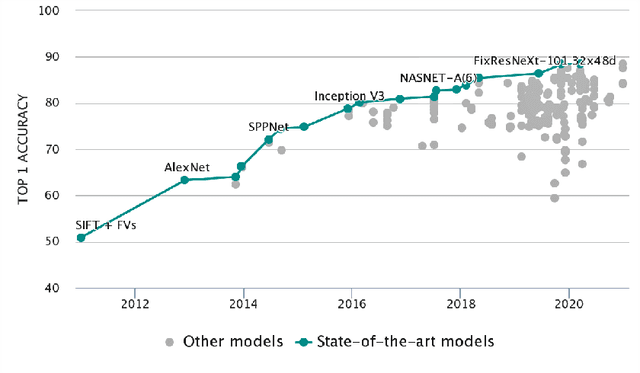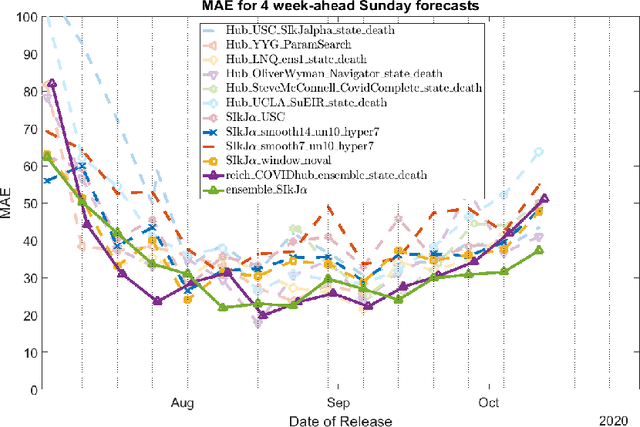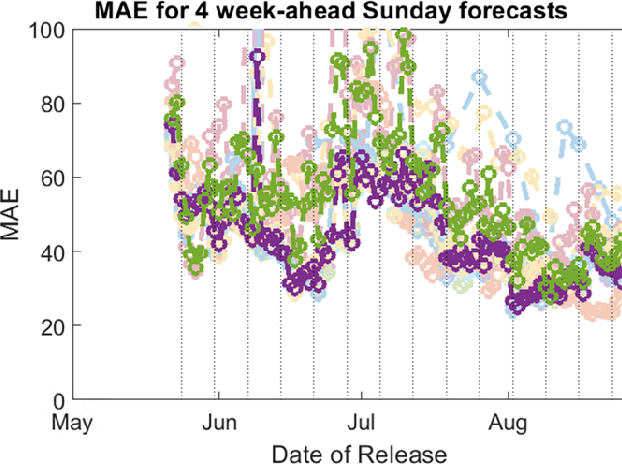The EpiBench Platform to Propel AI/ML-based Epidemic Forecasting: A Prototype Demonstration Reaching Human Expert-level Performance
Paper and Code
Feb 04, 2021



During the COVID-19 pandemic, a significant effort has gone into developing ML-driven epidemic forecasting techniques. However, benchmarks do not exist to claim if a new AI/ML technique is better than the existing ones. The "covid-forecast-hub" is a collection of more than 30 teams, including us, that submit their forecasts weekly to the CDC. It is not possible to declare whether one method is better than the other using those forecasts because each team's submission may correspond to different techniques over the period and involve human interventions as the teams are continuously changing/tuning their approach. Such forecasts may be considered "human-expert" forecasts and do not qualify as AI/ML approaches, although they can be used as an indicator of human expert performance. We are interested in supporting AI/ML research in epidemic forecasting which can lead to scalable forecasting without human intervention. Which modeling technique, learning strategy, and data pre-processing technique work well for epidemic forecasting is still an open problem. To help advance the state-of-the-art AI/ML applied to epidemiology, a benchmark with a collection of performance points is needed and the current "state-of-the-art" techniques need to be identified. We propose EpiBench a platform consisting of community-driven benchmarks for AI/ML applied to epidemic forecasting to standardize the challenge with a uniform evaluation protocol. In this paper, we introduce a prototype of EpiBench which is currently running and accepting submissions for the task of forecasting COVID-19 cases and deaths in the US states and We demonstrate that we can utilize the prototype to develop an ensemble relying on fully automated epidemic forecasts (no human intervention) that reaches human-expert level ensemble currently being used by the CDC.
 Add to Chrome
Add to Chrome Add to Firefox
Add to Firefox Add to Edge
Add to Edge